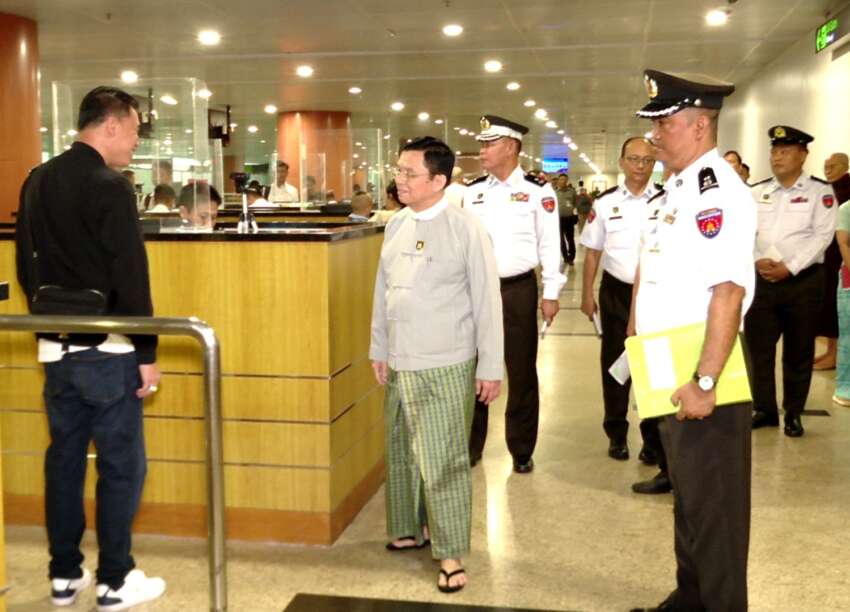
The military council has indefinitely suspended foreign employment permissions for basic workers due to low return rates of Myanmar workers from abroad, according to the Ministry of Labor in Naypyidaw. During this suspension period, only skilled workers and those going abroad under government-to-government (G to G) agreements are being permitted after careful screening.
All foreign worker deployments were temporarily suspended starting February 14, after which the Labor Ministry began selectively approving only skilled workers and those under G to G arrangements. Notably, the issuance of Overseas Worker Identification Cards (OWIC), which are essential for foreign employment, has been temporarily suspended for basic workers. The ministry source indicated that this decision was made under direct orders from the military council chairman Min Aung Hlaing.
This policy change came after Min Aung Hlaing appointed former Myanmar Ambassador to Thailand Chit Swe as Labor Minister on January 31. Currently, only skilled workers bound for Japan and Russia, and workers under G to G arrangements for Laos are being personally screened and approved by the Labor Minister. The military council has expressed concerns about foreign currency shortages and insufficient remittances from overseas workers during a February 11 meeting. Additionally, at a January 17 meeting, they discussed the declining population due to various factors including increased emigration, deaths, and falling birth rates, which has led to domestic labor shortages.
The military council’s decision reflects their growing concern over the exodus of workers and its impact on the domestic workforce. The restrictions particularly affect basic workers who make up the majority of Myanmar’s overseas labor force. This policy has significant implications for both the country’s economy and the livelihoods of countless workers who rely on foreign employment opportunities. The military council’s attempt to control worker outflow comes amid broader challenges including economic instability, declining foreign currency reserves, and demographic changes that are reshaping Myanmar’s labor landscape.



